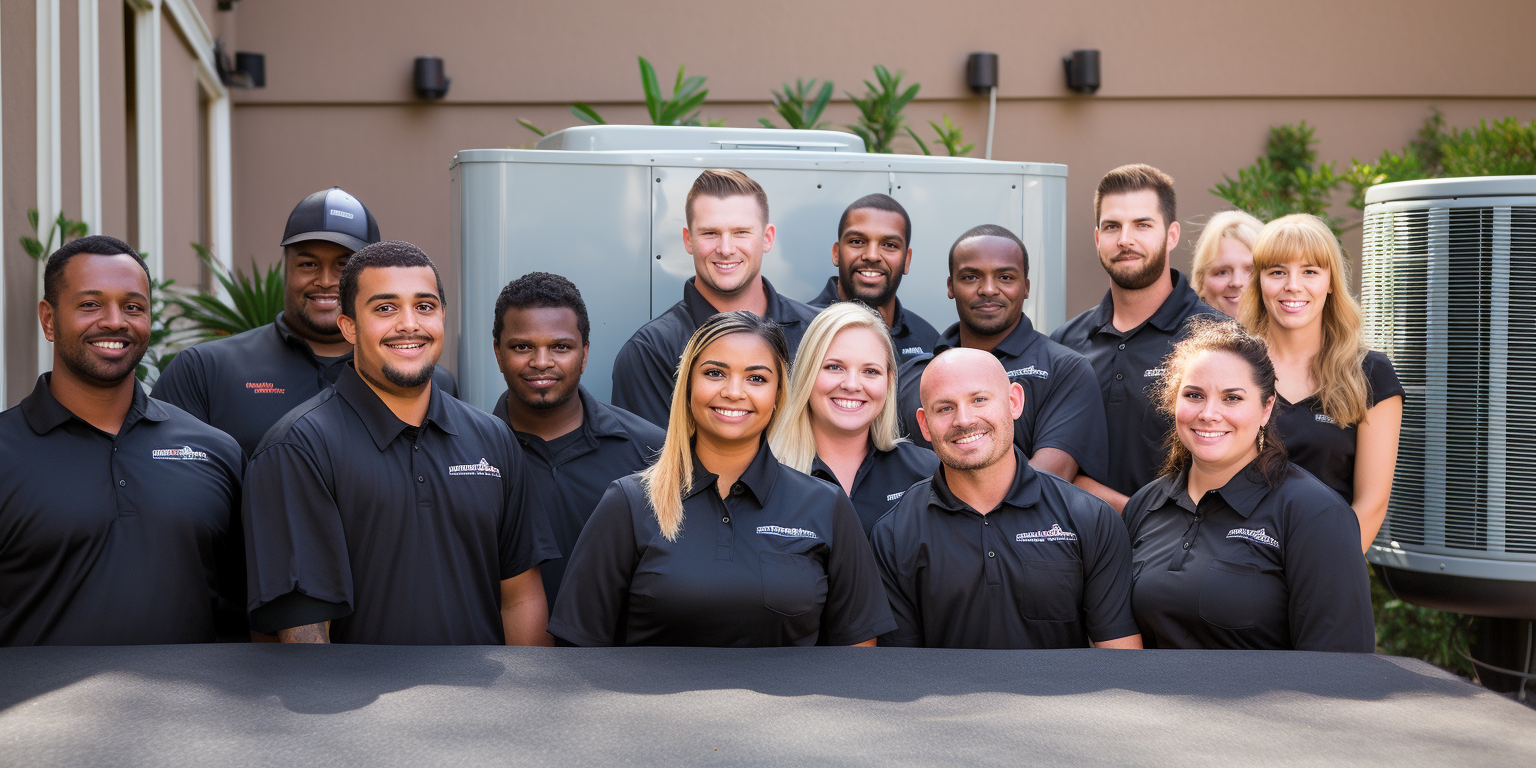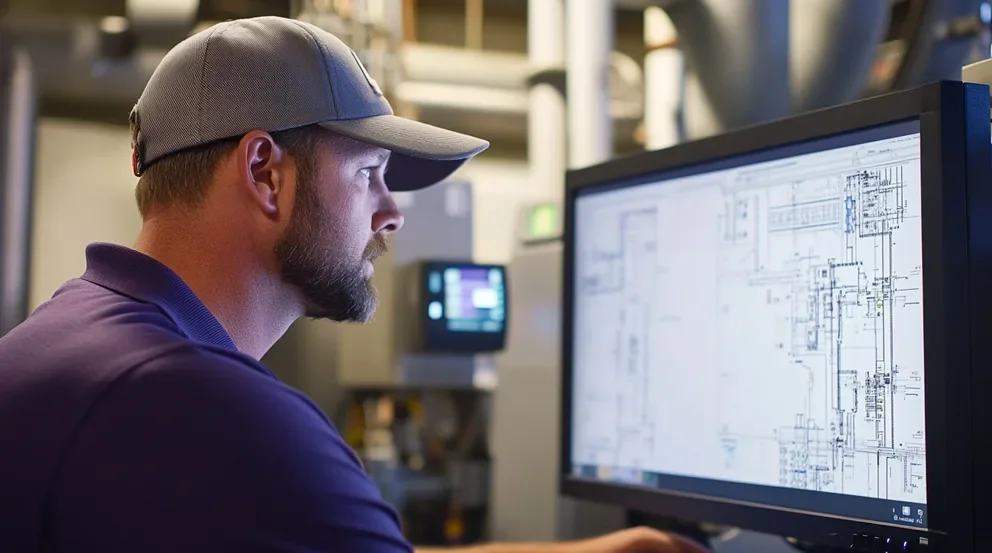As an HVAC technician, you’ll be in high demand, providing essential services that keep homes and businesses comfortable all year round. Getting your HVAC certification in Utah is not just about launching a new career, it’s about joining a respected profession that makes a difference in people’s lives. Let’s explore how you can start your journey to become a certified HVAC technician in Utah.
What are the prerequisites for obtaining an HVAC certification in Utah?
To obtain an HVAC certification in Utah, individuals must meet several prerequisites that ensure they have the necessary skills and knowledge. First and foremost, they must be at least 18 years old. This age requirement ensures that the individuals are mature enough to understand the complexities and responsibilities of the HVAC industry.
Second, potential candidates must have a high school diploma or equivalent. This educational requirement lays the groundwork for understanding the technical aspects of HVAC work, including mathematics and basic science.
Third, future HVAC technicians need to complete a training program or apprenticeship. These programs deliver hands-on experience and classroom instruction, covering various HVAC systems, tools, and safety procedures. An apprenticeship usually lasts 3-5 years, combining work with experienced technicians and theoretical study.
Fourth, after completing the training program or apprenticeship, one must pass a licensure examination. The examination evaluates knowledge in HVAC installation, repair, and maintenance.
Lastly, after obtaining the initial certification, technicians need to maintain it. In Utah, this involves completing continuing education credits. These credits ensure that technicians stay current with evolving technology and best practices in the HVAC industry.
How long does it take to complete an HVAC certification program in Utah?
Obtaining an HVAC certification in Utah typically takes between six months to two years, depending on the specific program a student chooses. Should they opt for a certificate program, they can expect to complete their studies in approximately six to twelve months. These programs focus primarily on practical skills and field training, enabling students to enter the job market more quickly.
Alternatively, students seeking a more comprehensive education may choose an associate degree program in HVAC. These programs typically take two years to complete and offer a more in-depth study of the field, including both practical skills and theoretical knowledge.
It’s also worth noting that Utah has specific licensing requirements for HVAC technicians, which include passing a state examination. Applicants for the exam must have either completed approved HVAC education or possess a minimum of 3,000 hours of related job experience.
The duration of training programs also depends on whether a student is studying full-time or part-time. Full-time students obviously complete their programs faster than those attending part-time. However, many institutions offer flexible schedules and online options, making it easier for working individuals to fit coursework into their busy lives.
What is the cost of an HVAC certification course in Utah?
Obtaining an HVAC certification in Utah is a strategic move for individuals seeking professional growth in this field. The cost, however, varies significantly depending upon factors such as the type of course, the institution offering the course, and the course duration.
A comprehensive HVAC course, which typically covers areas such as refrigeration, heating, air conditioning, and ventilation, may range from $1,200 to $15,000. This variance is largely due to differences in course duration and depth. Short-term courses may only take a few weeks and cost towards the lower end of the spectrum, while extensive programs could span several months and fall on the higher end.
On the other hand, an HVAC certification exam, which tests one’s knowledge and skills in this field, may cost anywhere from $200 to $400. This is a one-time cost and is separate from the course fee.
Some institutions also offer financial aid or flexible payment options to students, which can significantly reduce the upfront cost of obtaining the certification.
It’s worth noting that while the cost of HVAC certification courses in Utah can be a significant financial investment, the potential return on this investment, in terms of enhanced career opportunities and salary prospects, can be substantial. Hence, prospective students should consider all these factors when evaluating the cost of HVAC certification in Utah.
Are there any online HVAC certification programs available in Utah?
Yes, HVAC certification programs are readily available online for residents of Utah. These programs provide comprehensive training in the skills required to install, service, and repair heating, ventilation, and air conditioning systems. They serve as ideal platforms for individuals looking to start a career in this field or for professionals wanting to enhance their knowledge and skills.
Online HVAC certification programs offer flexibility, allowing trainees to learn at their own pace and convenience. They cover a wide range of topics such as basic electricity for HVAC, heating systems, refrigeration, air conditioning, and heat pumps. Some programs also offer modules on environmental systems and commercial refrigeration.
Upon successful completion of these programs, trainees are prepared to sit for relevant certification exams. It’s important to note, however, that while online programs provide thorough theoretical knowledge, practical, hands-on experience is critical in the HVAC field. Trainees are, therefore, encouraged to seek apprenticeship opportunities to supplement their online education.
Furthermore, potential trainees should ensure that the program they choose is recognized by local and national professional bodies. This recognition gives assurance of the program’s quality, and a reputable program’s certification is often sought by employers.
What is the curriculum of the HVAC certification program in Utah?
The curriculum for the HVAC certification program in Utah is designed to equip students with comprehensive knowledge and skills in heating, ventilation, and air conditioning. It commences with introductory courses which provide a broad understanding of HVAC principles. Students learn about the basic components of HVAC systems, their functions, and the science behind their operation.
The curriculum then delves into specific areas of HVAC, including electrical theory and controls, refrigeration systems, heating systems, and air distribution systems. In these courses, students understand the intricacies of how different HVAC systems function, their installation process, and common issues that might occur.
A key part of the program is practical learning. Learners engage in hands-on training, where they apply the theoretical knowledge in real-world scenarios. They learn to install, repair, and maintain HVAC systems, which is crucial for their professional development.
The program also covers safety practices in the HVAC industry. Students become well-versed in the safety standards and regulations they need to adhere to while working in the field.
Towards the end of the program, students explore energy management and auditing, learning how to make HVAC systems more energy efficient. They also learn about building codes and blueprints, essential for their future career.
The curriculum concludes with a certification exam preparation course. This assists students in preparing for the state certification exam, helping them review the material and understand the exam format.
Are there any financial aid options available for HVAC certification programs in Utah?
Yes, several financial aid options are available for HVAC certification programs in Utah. Students can apply for federal financial aid, including grants and loans, to cover their educational costs. The Federal Pell Grant, for instance, doesn’t require repayment and can make a significant difference in affording certification programs. Students can also explore work-study programs where they earn money to help cover education expenses while gaining hands-on experience and learning.
Additionally, numerous scholarships specific to trade schools and HVAC programs are available. Some are local to Utah, while others are nationally applicable. Scholarships are typically merit-based or need-based, and they provide monetary aid that students don’t need to repay.
Another viable option is tuition reimbursement. Some employers offer tuition reimbursement programs for employees looking to further their education in fields related to their job. These programs can cover a portion or even the entire cost of HVAC certification programs.
Finally, payment plans can be a viable option for students unable to pay the full cost upfront. Many schools offer flexible payment plans that allow students to pay their tuition in smaller, more manageable increments over time.
What job opportunities can I expect after getting an HVAC certification in Utah?
Earning an HVAC certification in Utah opens up a wide variety of job opportunities. In the role of an HVAC technician, one gets the chance to install, maintain, and repair heating, air conditioning, and refrigeration systems. This job offers a hands-on experience in both residential and commercial facilities.
Another common role is that of an HVAC installer. Here, one specializes in setting up new systems in buildings. This job requires a strong understanding of system blueprints and the ability to work with a variety of tools.
For those who prefer administrative work, a role as an HVAC project manager might be appealing. In this position, one oversees HVAC installation or repair projects, coordinates with clients, and manages technicians. It’s a role that combines technical HVAC knowledge with strong organizational skills.
Alternatively, individuals may choose to become HVAC sales representatives. This job involves selling HVAC equipment and systems to businesses and homeowners. It requires a good understanding of HVAC technology, as well as strong communication and sales skills.
Lastly, a career as an HVAC inspector could be an attractive path. As an inspector, one ensures that HVAC systems are installed correctly and comply with local codes and regulations. This job is crucial for maintaining safe and efficient HVAC operations in buildings.
Key Takeaways:
– Online HVAC programs are effective, but practical hands-on experience is important. Apprenticeships are encouraged to supplement theoretical knowledge.
– The HVAC certification program curriculum in Utah is comprehensive, covering HVAC principles, specific HVAC areas, safety practices, energy management, and certification exam preparation.
– There are several financial aid options for HVAC students in Utah, including federal grants and loans, scholarships, employer tuition reimbursement, and school payment plans.
– Earning an HVAC certification in Utah opens up numerous job opportunities, including technician, installer, project manager, sales representative, and inspector roles. The specific job roles vary from hands-on practical work to more administrative and managerial positions.



